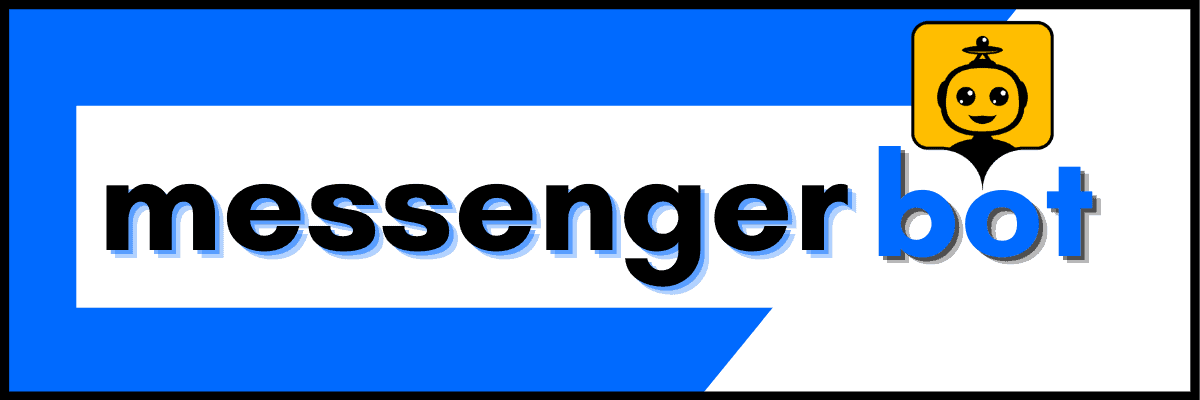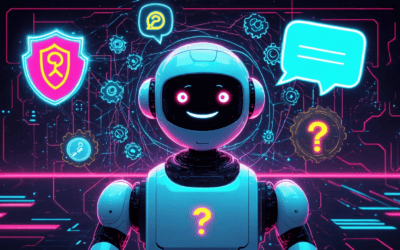In today’s fast-paced digital landscape, enhancing customer engagement is more crucial than ever, and WhatsApp Business bots are at the forefront of this transformation. These innovative AI-driven solutions not only streamline communication but also provide businesses with the tools to connect with their customers in real-time. In this article, we will explore the essential aspects of WhatsApp Business bots, including whether they truly exist, the policies governing their use, and the various types available to businesses. We will also delve into the role of AI in these bots, offering insights on how they can significantly improve customer interactions. Additionally, we will provide practical tips on identifying authentic WhatsApp Business accounts and share a curated list of the best WhatsApp business bots tailored for diverse needs. Join us as we unlock the power of WhatsApp Business bots and discover how they can revolutionize your customer engagement strategy.
“`html
Does WhatsApp Business have bots?
Yes, WhatsApp Business supports the use of bots through the WhatsApp Business API. These AI-powered chatbots can automate interactions with customers, providing quick responses and enhancing user engagement without requiring human intervention.
Overview of WhatsApp Business Bots
WhatsApp Business bots are designed to streamline communication between businesses and their customers. By leveraging the WhatsApp API, these bots can perform a variety of functions that enhance customer experience and operational efficiency.
Key Features of WhatsApp Business Bots:
- Automation of Customer Interactions: Bots can handle frequently asked questions, process orders, and provide support, significantly reducing response times and improving customer satisfaction.
- 24/7 Availability: Unlike human agents, bots can operate around the clock, ensuring that customer inquiries are addressed at any time, which is crucial for businesses with global clientele.
- Personalization: Advanced bots utilize AI and machine learning to analyze user data and tailor responses, creating a more personalized experience for customers.
- Integration with Other Tools: WhatsApp Business bots can be integrated with CRM systems and other business tools, allowing for seamless data flow and enhanced customer relationship management.
- Scalability: As businesses grow, bots can easily scale to handle increased volumes of inquiries without the need for additional staffing.
Benefits of Using WhatsApp Business Bots for Customer Engagement
Implementing a WhatsApp Business bot can significantly enhance customer engagement and operational efficiency. Here are some key benefits:
- Improved Response Times: Bots can provide instant replies to customer inquiries, ensuring that users receive timely information.
- Cost-Effective Solution: Automating customer interactions reduces the need for extensive customer service teams, leading to lower operational costs.
- Enhanced Customer Insights: Bots can collect and analyze customer data, providing businesses with valuable insights into customer preferences and behaviors.
- Streamlined Processes: By automating routine tasks, businesses can focus on more complex customer needs and improve overall service quality.
For more detailed guidance, refer to the official WhatsApp Business documentation and resources from reputable sources like Brain Pod AI and Sprout Social, which provide insights into best practices for bot implementation and customer interaction strategies.
“`

Are Bots Allowed on WhatsApp?
Yes, bots are allowed on WhatsApp. The platform provides a dedicated API for businesses to integrate chatbots, enabling automated communication with users. Here are key points regarding the use of bots on WhatsApp:
- WhatsApp Business API: Businesses can utilize the WhatsApp Business API to connect their chatbots, facilitating customer interactions at scale. This API is designed for medium to large businesses and allows for automated messaging, customer support, and notifications.
- WhatsApp Business App: For smaller businesses, the WhatsApp Business app is available, which includes features to manage customer interactions and track marketing efforts. This app supports basic automation through quick replies and automated greetings.
- Analytics and Insights: After deploying a bot, businesses can access analytics through platforms like Botpress Studio. This allows for tracking user engagement, response times, and overall performance metrics, which are crucial for optimizing chatbot interactions.
- Compliance and Best Practices: It’s essential for businesses to adhere to WhatsApp’s policies regarding user consent and messaging frequency. Bots must provide value and not overwhelm users with unsolicited messages.
- Use Cases: Common applications of WhatsApp bots include customer support, appointment scheduling, order tracking, and marketing campaigns. These bots enhance user experience by providing instant responses and 24/7 availability.
For further reading on WhatsApp’s policies and best practices for chatbot implementation, refer to the official WhatsApp Business documentation and resources from industry leaders like HubSpot and Chatbots Magazine.
Understanding WhatsApp’s Policies on Bots
WhatsApp has established clear guidelines for the use of bots to ensure a positive user experience. Compliance with these policies is crucial for businesses looking to leverage WhatsApp business bots. Here are some important aspects of WhatsApp’s policies:
- User Consent: Businesses must obtain consent from users before sending messages via bots. This ensures that users are aware of and agree to receive automated communications.
- Message Frequency: WhatsApp limits the frequency of messages that can be sent to users. Businesses should avoid overwhelming users with excessive messages, focusing instead on delivering value through timely and relevant communications.
- Content Guidelines: Bots must adhere to WhatsApp’s content guidelines, which prohibit spammy or misleading content. This helps maintain the integrity of the platform and protects users from unwanted interactions.
Compliance and Best Practices for WhatsApp Bots
To effectively implement WhatsApp bots while adhering to compliance standards, businesses should follow these best practices:
- Provide Value: Ensure that the bot delivers meaningful interactions, such as answering queries, providing support, or facilitating transactions. This enhances user satisfaction and encourages continued engagement.
- Monitor Performance: Regularly analyze bot performance metrics to identify areas for improvement. Tools like analytics platforms can provide insights into user engagement and response effectiveness.
- Stay Updated: Keep abreast of any changes to WhatsApp’s policies or features. This ensures that your bot remains compliant and can take advantage of new functionalities as they become available.
Do WhatsApp Bots Exist?
WhatsApp bots are indeed a reality, revolutionizing how businesses engage with customers. These automated conversational agents leverage artificial intelligence (AI) and machine learning (ML) to provide efficient, scalable communication solutions. Here’s a detailed look at their functionalities and benefits:
Exploring the Different Types of WhatsApp Bots
There are various types of WhatsApp bots designed to meet different business needs. Here are some key categories:
- Customer Support Bots: These bots handle customer inquiries, providing instant responses to frequently asked questions (FAQs) and troubleshooting issues. This reduces wait times and enhances customer satisfaction.
- Sales and Marketing Bots: Businesses utilize WhatsApp bots to facilitate sales processes, send promotional messages, and gather customer feedback. They play a crucial role in marketing strategies, helping brands connect with their audience effectively.
- Transactional Bots: These bots assist in processing transactions, such as booking appointments or confirming orders. They streamline operations and enhance user experience by providing timely updates.
- Personalized Bots: Advanced WhatsApp bots analyze user data to offer personalized recommendations and responses, significantly improving customer engagement.
With the integration of the WhatsApp API, businesses can create tailored solutions that fit their unique operational needs.
WhatsApp Business Bots List: Popular Options Available
Several popular WhatsApp business bots are available, each offering unique features to enhance customer interaction:
- Brain Pod AI: Known for its robust AI capabilities, Brain Pod AI provides a comprehensive suite of tools for businesses looking to automate their customer interactions. You can explore their offerings here.
- Chatfuel: This platform allows businesses to create chatbots without coding, making it accessible for companies of all sizes.
- ManyChat: A popular choice for marketing automation, ManyChat enables businesses to engage customers through interactive messaging.
- WhatsApp Business API: This API allows businesses to connect with customers at scale, providing a powerful tool for customer service and engagement.
Utilizing a WhatsApp business bot can significantly enhance your customer service capabilities, ensuring you remain competitive in today’s digital landscape.
Does Business WhatsApp Have AI?
Yes, WhatsApp Business incorporates AI features to improve customer interactions. The integration of AI within WhatsApp Business enhances the overall user experience and streamlines communication processes. Here are key aspects of how AI is utilized within WhatsApp Business:
The Role of AI in WhatsApp Business Bots
AI plays a pivotal role in transforming how businesses interact with their customers on WhatsApp. One of the primary features is the use of automated responses. Businesses can set up automated replies using AI to handle frequently asked questions, ensuring customers receive immediate assistance even outside business hours. This feature enhances customer satisfaction by providing timely information.
Additionally, many businesses integrate AI-powered chatbots into their WhatsApp Business accounts. These chatbots can engage in natural language conversations, helping to guide customers through inquiries, provide product recommendations, and facilitate transactions. According to a study by Juniper Research, chatbots are expected to save businesses over $8 billion annually by 2022 through improved customer service efficiency.
Another significant advantage of AI in WhatsApp Business is personalization. AI algorithms analyze customer interactions to personalize responses and recommendations. This tailored approach can significantly enhance user experience, leading to higher engagement rates. Research from McKinsey indicates that personalization can increase customer satisfaction by up to 20%.
Moreover, WhatsApp Business leverages AI to analyze conversation data, providing businesses with insights into customer behavior and preferences. This data can inform marketing strategies and improve service delivery. The integration of AI capabilities also allows WhatsApp Business to connect seamlessly with Customer Relationship Management (CRM) systems, helping businesses maintain a comprehensive view of customer interactions across multiple platforms, enhancing overall service quality.
How AI Enhances Customer Interactions on WhatsApp
AI enhances customer interactions on WhatsApp through various innovative features. For instance, the ability to provide real-time assistance through chatbots ensures that customers receive support whenever they need it. This immediacy not only improves customer satisfaction but also fosters loyalty.
Furthermore, AI-driven insights allow businesses to refine their communication strategies. By understanding customer preferences and behaviors, companies can tailor their messaging to resonate more effectively with their audience. This level of engagement is crucial in today’s competitive landscape, where personalized experiences can set a brand apart.
For businesses looking to implement these AI features, exploring options like the Brain Pod AI platform can provide valuable tools and resources. Their AI solutions are designed to enhance customer interactions across various channels, including WhatsApp, making it easier for businesses to adopt advanced technologies.
In conclusion, the integration of AI in WhatsApp Business not only streamlines communication but also significantly enhances the customer experience, making it an essential tool for businesses aiming to improve their customer engagement strategies.

How can you tell a fake WhatsApp Business account?
Identifying a fake WhatsApp Business account is crucial for ensuring secure interactions and protecting your personal information. Here are some key indicators to help you discern between authentic and fraudulent accounts.
Identifying Authentic WhatsApp Business Accounts
To identify a fake WhatsApp Business account, consider the following key indicators:
- Verification Badge: Look for the green checkmark badge next to the business name in the profile. This badge signifies that the account has been verified by WhatsApp as an authentic brand. If the badge is absent, the account may not be legitimate.
- Profile Information: Examine the profile details. Authentic business accounts typically provide comprehensive information, including a business description, website link, and contact details. A lack of these elements may indicate a fake account.
- Messaging Patterns: Be cautious of unsolicited messages or offers that seem too good to be true. Legitimate businesses usually do not initiate contact without prior interaction.
- Response Time and Quality: Genuine businesses tend to respond promptly and professionally. If the responses are vague, delayed, or unprofessional, it may be a sign of a fake account.
- Customer Reviews and Ratings: Check for customer feedback on the business. Authentic businesses often have reviews available on their website or social media platforms. A lack of reviews or negative feedback can be a red flag.
- Official Website Verification: Cross-reference the business with its official website. If the WhatsApp Business account claims to represent a well-known brand, ensure that the website matches the information provided in the WhatsApp profile.
- Contact Methods: Verify the contact methods provided. Legitimate businesses usually offer multiple ways to reach them, such as phone numbers, email addresses, or links to their official social media pages.
For further information on identifying fake accounts, refer to WhatsApp’s official guidelines on business accounts and cybersecurity resources that discuss online scams and how to avoid them.
Tips for Verifying WhatsApp Business Accounts
To ensure you are interacting with a legitimate WhatsApp Business account, follow these tips:
- Always look for the verification badge before engaging with a business.
- Research the business online to confirm its legitimacy and read customer reviews.
- Be wary of accounts that request sensitive information or payment details upfront.
- Utilize the WhatsApp API to enhance your understanding of business interactions.
- Consider using a multilingual AI chat assistant for additional support in verifying business communications.
By following these guidelines, you can protect yourself from potential scams and ensure a safe experience while using WhatsApp Business.
Am I talking to a bot on WhatsApp?
When engaging with WhatsApp Business bots, it’s essential to recognize the signs that indicate whether you are conversing with a bot or a human agent. Understanding these indicators can enhance your communication experience and help you navigate customer service interactions more effectively.
Understanding the User Experience with WhatsApp Bots
To determine if you are talking to a bot on WhatsApp, consider the following indicators:
- Vague Responses: Bots often provide generic or ambiguous answers that lack specificity. If the replies seem overly broad or fail to directly address your questions, it may indicate a bot.
- Difficulty with Subtext: Bots typically struggle to understand nuances such as sarcasm, humor, or emotional tone. If the conversation feels flat or lacks emotional depth, it could be a sign of a bot.
- Repetitive Patterns: Bots may use scripted responses or repeat phrases frequently. If you notice the same answers being given to different questions, it’s likely you’re interacting with a bot.
- Delayed Responses: While humans may take time to think or respond, bots can often reply instantly. If the response time is consistently quick, it might suggest a bot.
- Inability to Answer Complex Questions: Bots usually excel at simple queries but falter with more complex or open-ended questions. If your inquiries lead to confusion or irrelevant answers, it may indicate a bot.
- Lack of Personalization: Bots often fail to remember past interactions or personalize responses. If the conversation feels impersonal and lacks context from previous messages, it may be a bot.
For further reading on distinguishing between human and bot interactions, refer to resources such as the article from Fraudlogix on identifying bots in digital communication.
How to Differentiate Between Bots and Human Agents
When using WhatsApp for business communications, recognizing the difference between bots and human agents can significantly impact your experience. Here are some strategies to help you differentiate:
- Ask Open-Ended Questions: Engage the responder with open-ended questions that require detailed answers. Bots may struggle to provide comprehensive responses.
- Monitor Response Time: Pay attention to how quickly responses are received. Consistently rapid replies may indicate a bot.
- Look for Personalization: Human agents typically personalize their responses based on previous interactions. If the conversation lacks context or feels generic, it might be a bot.
- Test Emotional Understanding: Use humor or sarcasm to see how the responder reacts. Bots often fail to grasp emotional nuances.
By employing these strategies, you can enhance your interactions on WhatsApp and ensure a more satisfying customer service experience. For businesses looking to implement effective communication strategies, exploring options like Brain Pod AI can provide advanced solutions for customer engagement.
Best WhatsApp Business Bots for Various Needs
When it comes to enhancing customer engagement and streamlining communication, WhatsApp business bots offer a plethora of solutions tailored to different user needs. These bots leverage the WhatsApp API to automate interactions, ensuring businesses can maintain a responsive presence without overwhelming their teams. Below, we explore the best WhatsApp business bots designed for specific audiences, including students and those seeking cost-effective options.
WhatsApp Business Bots for Students: Tailored Solutions
Students can greatly benefit from WhatsApp chatbots designed specifically for their needs. These bots can assist with various tasks, such as providing information about courses, deadlines, and campus events. For instance, a multilingual AI chat assistant can help students from diverse backgrounds access information in their preferred language, breaking down communication barriers.
Additionally, bots can facilitate study groups by connecting students with similar interests or subjects, enhancing collaborative learning. By utilizing a chatbot for business use, educational institutions can automate responses to frequently asked questions, allowing staff to focus on more complex inquiries.
WhatsApp Chatbot Free Options: Cost-Effective Solutions
For businesses looking to implement WhatsApp bots without significant financial investment, there are several free options available. Many platforms offer free trials or basic versions of their chatbots for businesses, allowing companies to test functionalities before committing to a paid plan. Utilizing a free trial can be an excellent way to explore the capabilities of a WhatsApp business chatbot without upfront costs.
Furthermore, open-source solutions like WhatsApp bot GitHub repositories provide businesses with the flexibility to customize their bots according to specific needs. This approach not only saves costs but also allows for tailored functionalities that align with business objectives. By integrating these chatbots for business, companies can enhance customer interactions and improve overall service efficiency.




